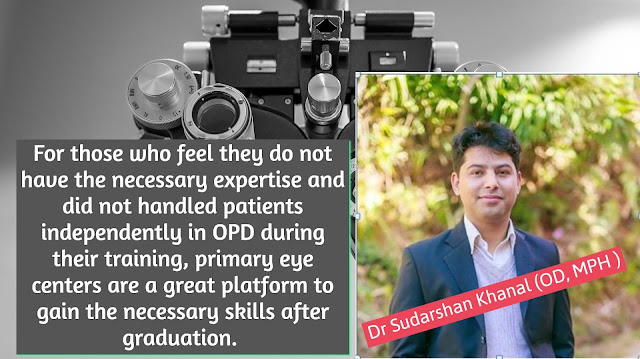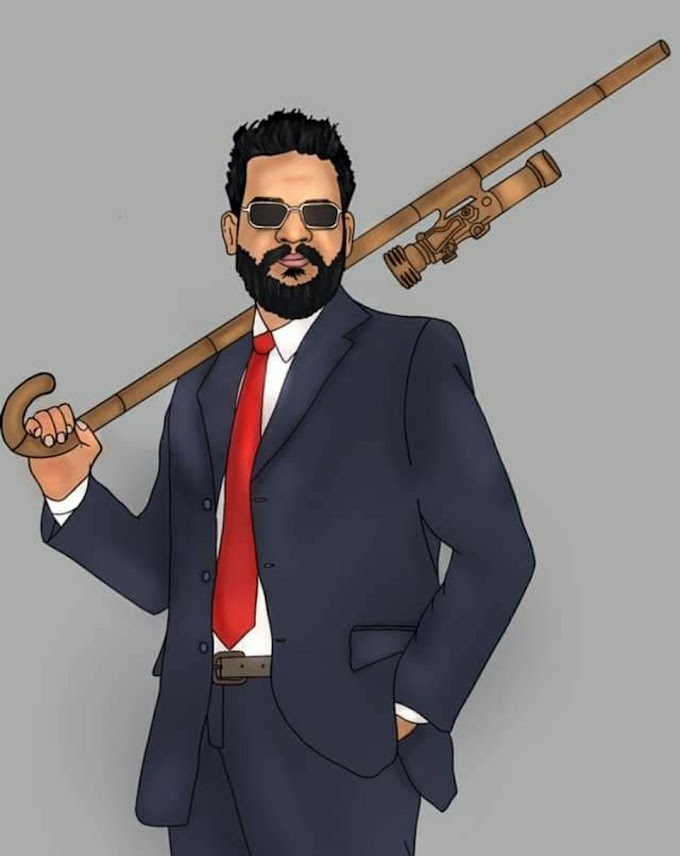Opinion Article © Vision Club 2020

By
definition, entrepreneur is a person who starts business, taking on financial
risks in the hope of profit.
Personally, I started private practice in Optometry and by definition it is a professional business that is not
controlled or paid by the government. So the most important attribute is being
a professional. It would not be in
our best interest if we misinterpret entrepreneurship in optometry like other
regular business and put efforts in maximizing profits. Entrepreneurship in
optometry is related to professional private
practice of optometry where eye care needs of people are customized. So I
will be sharing my experience related to private
practice in optometry with opportunities and challenges. I will be sharing
my things in two sections. In first section I will share about starting a
private practice and in the second section I will share about opportunities and
challenges.
Starting
a private practice
A
common question strikes in every student or graduate, ‘When is the right time
to start private practice?’ I would like to quote the rule of 10,000
hours by Malcolm Gladwell. He points out repetition of 10,000 times to get
mastery in any field and gaining specific skills. He described different sport
persons, musicians, doctors and politicians in his book 'Outliers' and came to
conclude rule of thumb of 10,000.
Interestingly,
an optometry student in Eye Department at Institute of Medicine during their
four year time happens to consult around 10,000 patients. Out of those 10,000
around 5000 are consulted in out- patient department (which we call room no 3) independently and gain expertise at
diagnosing, treating and managing patients.
Diagnosis
is not that straightforward as it seems. It is a great privilege to be a great
diagnostician than to be an average doctor. According to Dr Groopeman, the
writer of book, ‘How doctors think?’ being a good diagnostician requires
recognition of the importance of language, mood, ego and bias. Differential
diagnosis is based on two approach, pattern recognition and analytic. Both
approaches are subject to error from cognitive biases.
Cognitive
biases can be anchoring bias where we give excessive weight to early or initial
information, confirmation bias where we focus on supporting evidence for
diagnosis while ignoring contradictory evidence and availability bias where we
give too much weight to diagnose that comes readily in our mind e.g.
conjunctivitis in any kind of red eye.

The
very important thing is to analyze things very deeply and turn raw data into
medically meaningful information. It needs solid foundation of basic sciences
and a lot of patient base to be handled independently
where you analyze data, come up with differential diagnosis and final
diagnosis. Final diagnosis makes it easier to prescribe treatment in the form
of medicine or spectacles or surgery.
If
we follow the rule of 10,000 and handle independently
that number of patient we can assume that we can become a clinician that makes
less cognitive biases and come up with more accurate diagnosis. This is the
first and most important step to be good at if one is thinking of starting a
private practice. If this foundation is laid poorly, then there are high
chances one end up doing lots of misdiagnosis that shrink patient base and
shift his/her focus to optical business.
For
those who feel they do not have the necessary expertise and did not handled
patients independently in OPD during
their training at tertiary eye hospitals, district eye care centers are the great
platforms to gain the necessary skills after graduation. If one spent few years
in a primary eye care center and at the same time did study cases, consulted
with seniors and managed case on evidence-based practice, then they would be in
an ideal position to start private practice at their chosen location.
Personally
speaking, I graduated in 2013 from Institute of Medicine, worked at Lumbini
Medical College for six months, then involved in clinical practice in Kathmandu
for a year before moving to Philippines. I completed OD with six months
rotation in different hospitals and clinical settings. Later on, I did clinical
practice for one year before starting private
practice in 2018.
Many
graduates prefer to start immediately as soon as they graduate and presume
optical business as a private practice which
I think is a different approach if we consider ourselves as a clinician or
doctor or health care professional.
I
am always intrigued by and motivated by a quote from Abraham Lincoln, “If I had
six hours to chop down a tree, I would spend first four hours sharpening the
axe.” And private practice is like that.
Join our Vision Club in Facebook




1 Comments